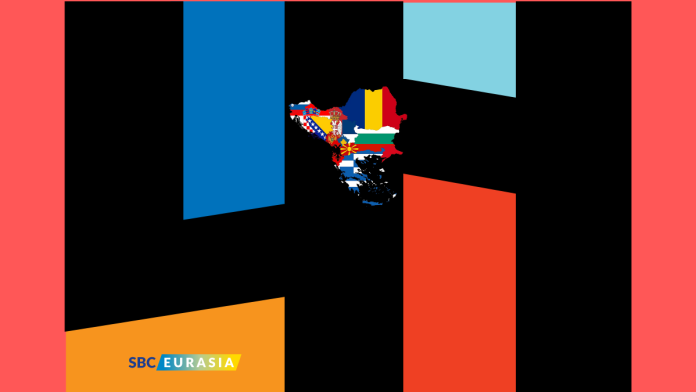The countries of the Balkan Peninsula are very attractive for operators. One of the most important economic components of the development of the Balkan countries is tourism, which is possible due to the favourable geographical location of these countries. The gambling industry is legalised in many countries of the Balkan Peninsula. However, the issue of regulation and trends in the development of gambling industry in the Balkan countries is not very popular among observers. Therefore, this article will help to understand the current trends in the gambling markets of Albania, Bulgaria, Bosnia and Herzegovina, Montenegro, and Romania.
The general trend of the Balkan countries is the next step to change gambling legislation and focus on the problems of responsible gambling. In many countries, there have been changes in gambling legislation (including changes in the cost of licenses and taxation), and the Balkan countries have not become an exception to the European discourse on responsible gambling. These trends underline the importance of the Balkan market for operators. As an example, Flutter, the world’s largest online betting company, has strategically acquired a 51% stake in MaxBet (Serbia’s number two sports betting and gaming operator) for 148,100,000 USD at the end of 2023, signaling its strategic intent to expand its presence throughout the Balkans.
The Albanian Parliament voted again in February 2024 in favour of allowing online gambling, thus changing its policy of banning online gambling from 2018. The proposed gambling rules in the Balkans require online gambling to be with licensed operators, accepting digital payments only, registering players, and storing their data for three years. Sports betting organizers must pre-register players and use authorized financial agents for deposits. Operators need to guarantee winnings, maintain a minimum fund for 10,000,000 ALL (≈ 106,000 USD). There are also provisions for a 200,000,000 ALL (≈ 2,1000,000 USD) online license fee, granted for 10 years.
Such moves of the Albanian government show that the ban on online gambling did not lead to the expected results. Offshore operators were working in the country – this was the reason for their legalisation, which will allow them to control operators more effectively and generate additional income.
In Bulgaria, the gambling legislation was amended at the beginning of 2024. The new version of the law has changed the license cost for many gambling verticals and taxation. For example, online gambling licenses will cost 2,000,000 BGN (≈ 1,100,000 USD); land-based betting – BGN 10,000,000 BGN (≈ 5,500,000 USD). The new legislation is aimed at increasing the country’s revenue from the gambling industry.
From our point of view, The Bulgarian gambling market has matured and proved to be an essential piece of the jigsaw for those operators with business interests in Eastern Europe, it has seen significant growth in online activity, with the number of issued online licenses doubling from 2021 to 2022. However, the most popular gambling vertical in Bulgaria is slot machines hall (1106 licenses, compared to online gambling – 19 licenses, land-based casino – 20 licenses).
Similar changes are typical for Romania. Thus, at the end of 2023, Romania changed its gambling legislation (increasing license fees and taxation).
In Montenegro, at the end of 2023, the government initiated amendments to the gambling legislation. The new provisions of the draft law provoked discussions among operators. The change in Montenegro’s gambling law aims to prohibit e-banking and mobile payments for betting account deposits. This would limit customers to depositing cash at a betting shop or using a card at a terminal in the shop.
On 3 March 2024 Montenegro Bet, a trade association, urged the country’s assembly to oppose proposed gambling law changes that would ban electronic payments. They argue that these amendments violate the constitution and EU laws, which Montenegro aims to adhere to as it seeks EU membership.
From our point of view, such changes may strongly affect the development of the gambling industry in Montenegro. It will be unprofitable for an operator to obtain an online license if it will be prohibited to receive e-banking and mobile payments. As a conclusion, the number of offshore operators who will be able to accept such payments may increase in the country
In Bosnia and Herzegovina at the end of 2023, the problems of gambling addiction were actively discussed. Based on the results of a scientific study, most youth in Bosnia and Herzegovina have played in gambling, with over 70% having done so at least once. Sports betting and lotteries are the most popular forms, followed by a growing number engaging in online gambling. Many have gambling apps on their smartphones, indicating the increased availability of gambling among young people. This leads to excessive spending and a loss of control, yet many do not see their gambling as problematic or seek help.
The problem of responsible gambling is relevant in Bosnia and Herzegovina and other European countries. Such recent trends can be seen in other European countries (the Netherlands, Belgium, Georgia, and others). The problem of responsible gambling may become a major issue for most countries on the European continent. Such results of the public survey in Bosnia and Herzegovina may stimulate further legislative changes and stricter regulation.
The gambling market in the Balkans offers growth opportunities but grapples with regulatory hurdles, illegal operators, and gambling addiction concerns. Balancing profits with responsible practices is a constant challenge for regulators and industry players. The countries of the Balkan Peninsula continue to search for optimal regulation of the gambling industry to create clear rules for operators. In addition, some Balkan countries are typical of the European trend of regulating responsible gambling!
Ivan Kurochkin, Partner and Head of Eastern Europe Desk at 4H Agency
Don’t forget to subscribe to our Telegram channel!











